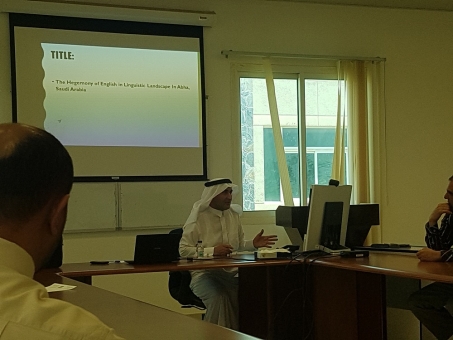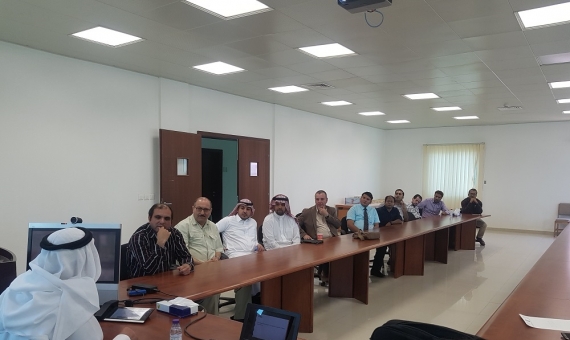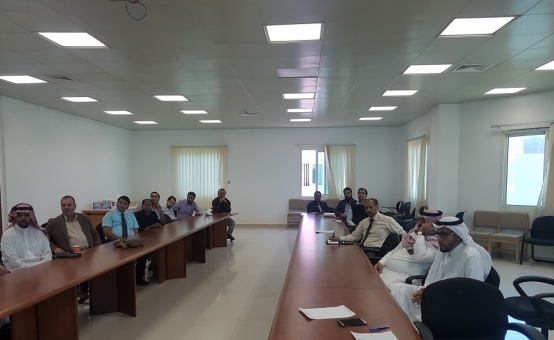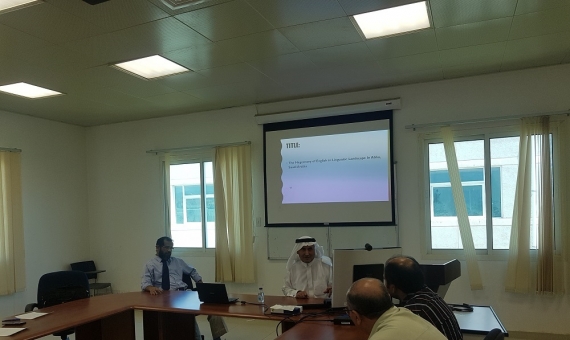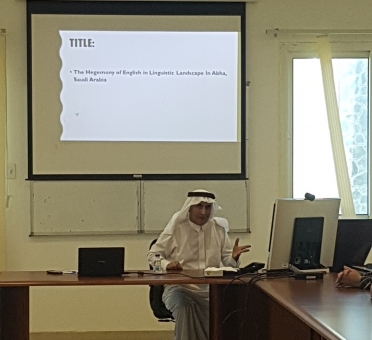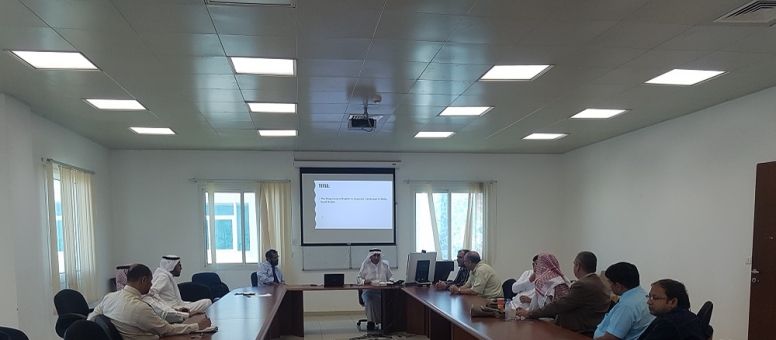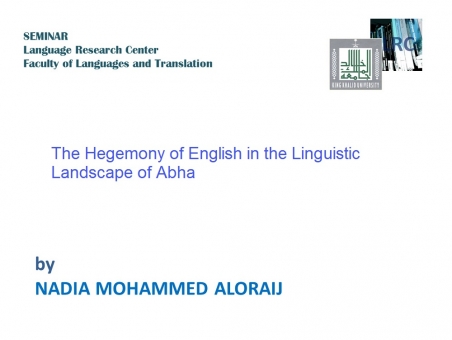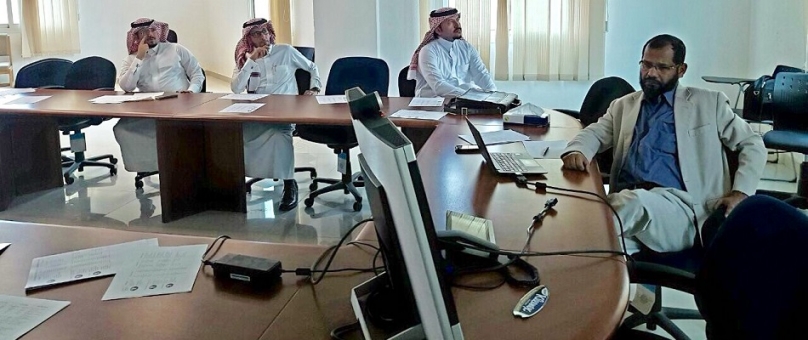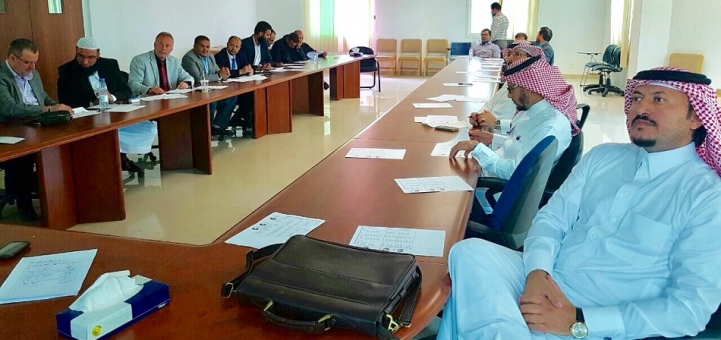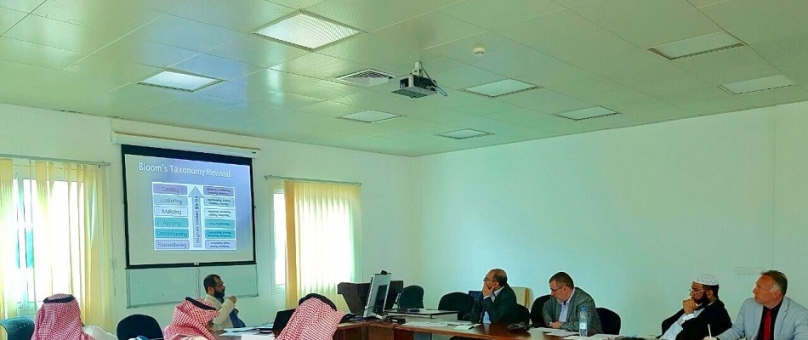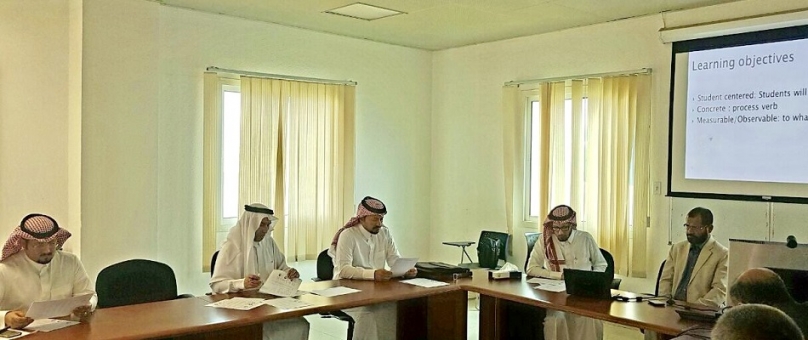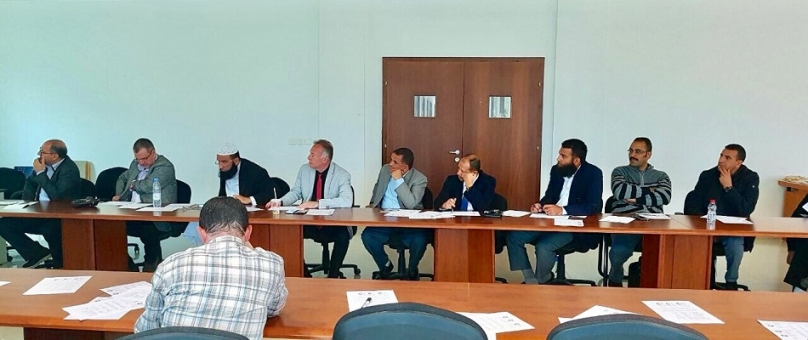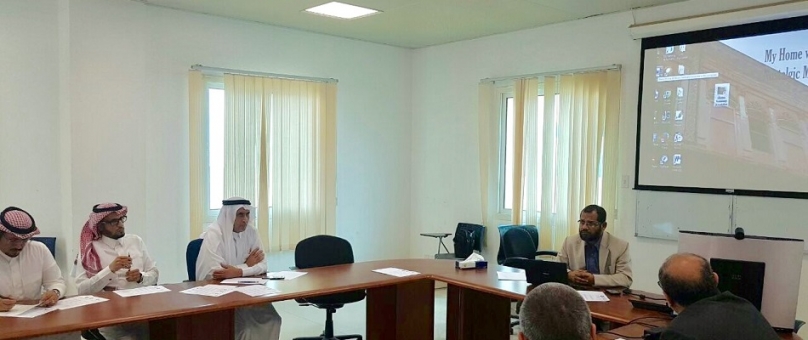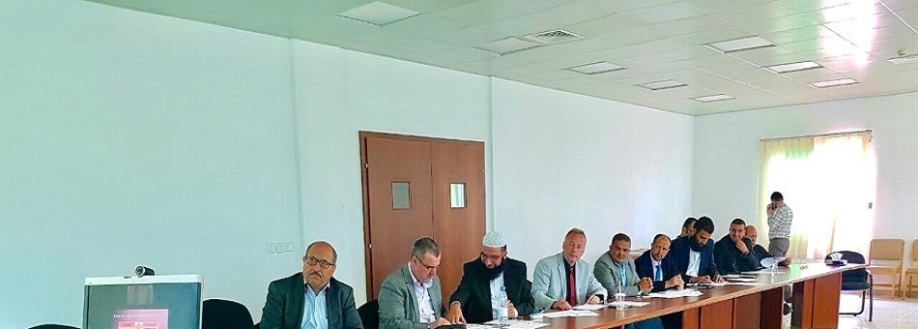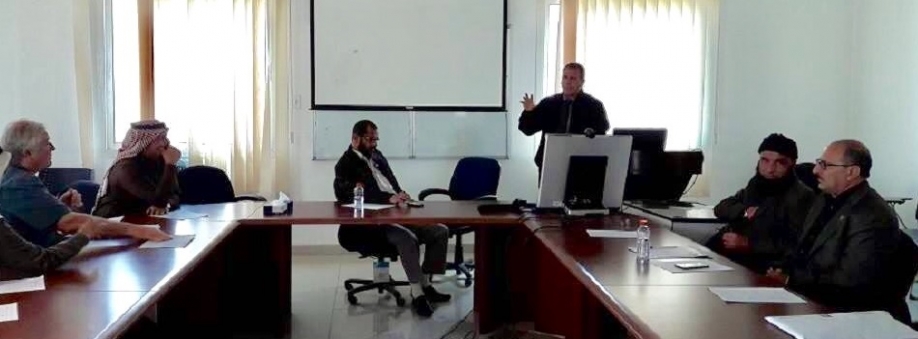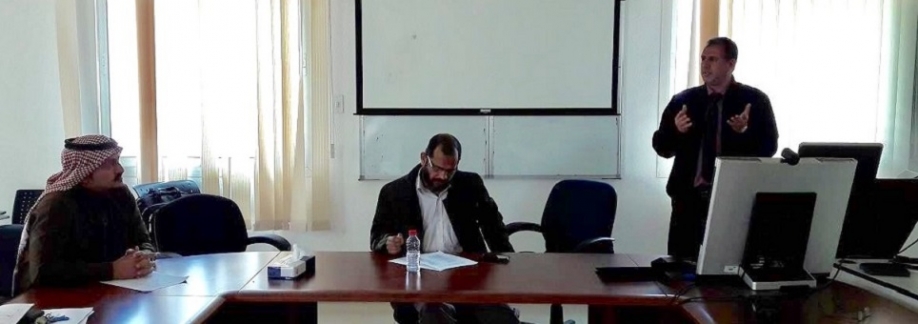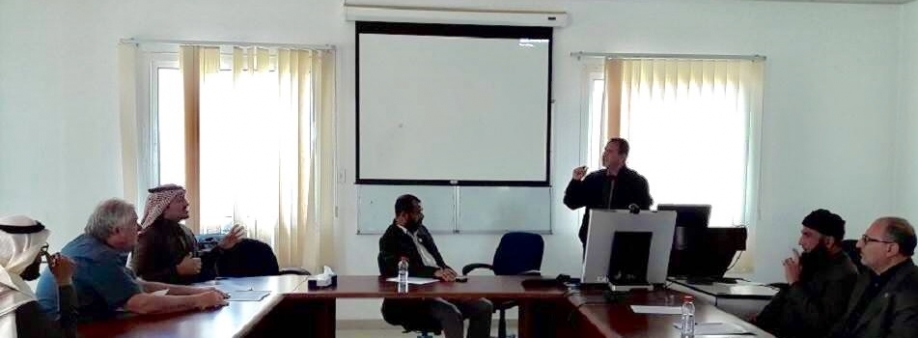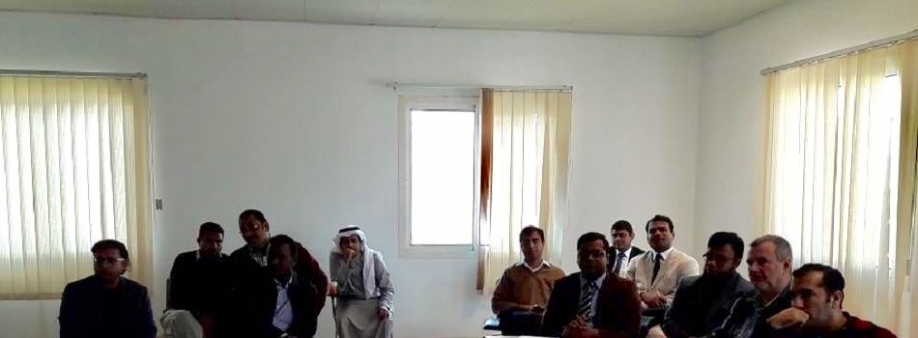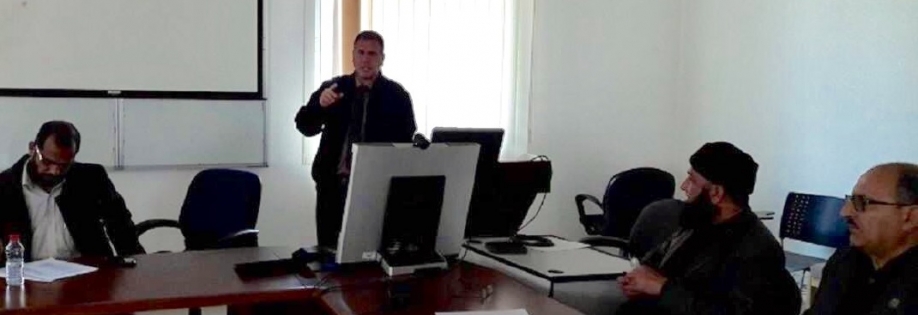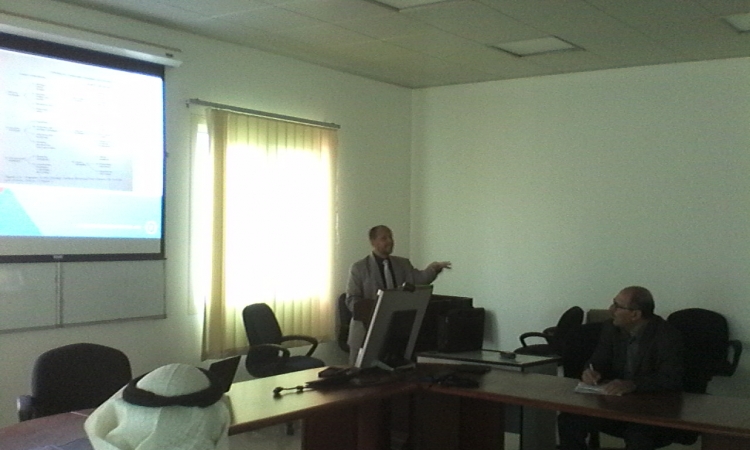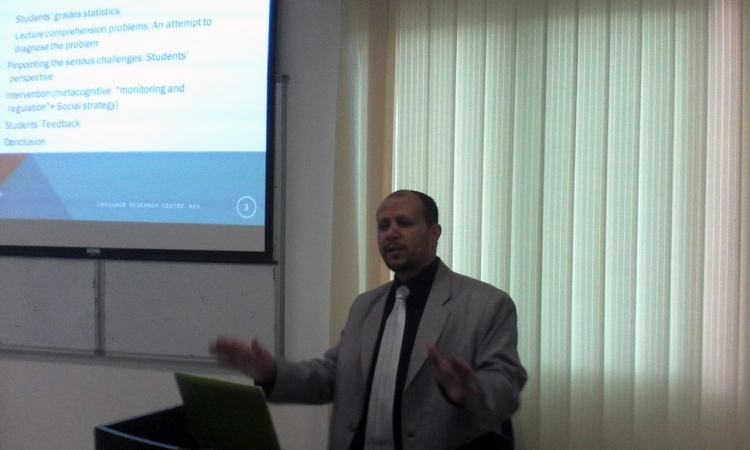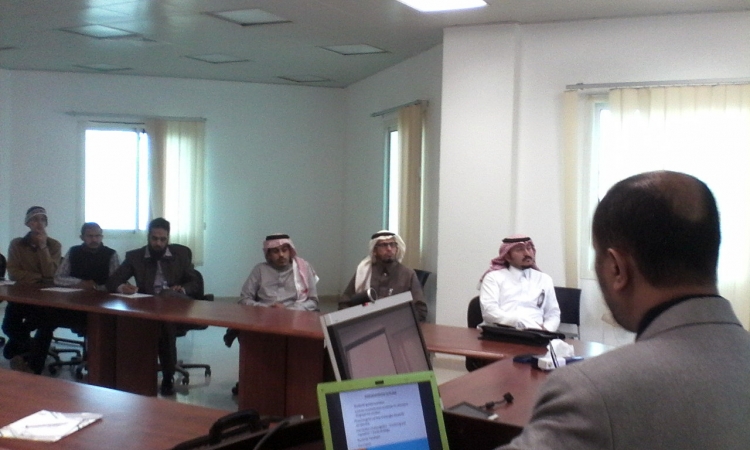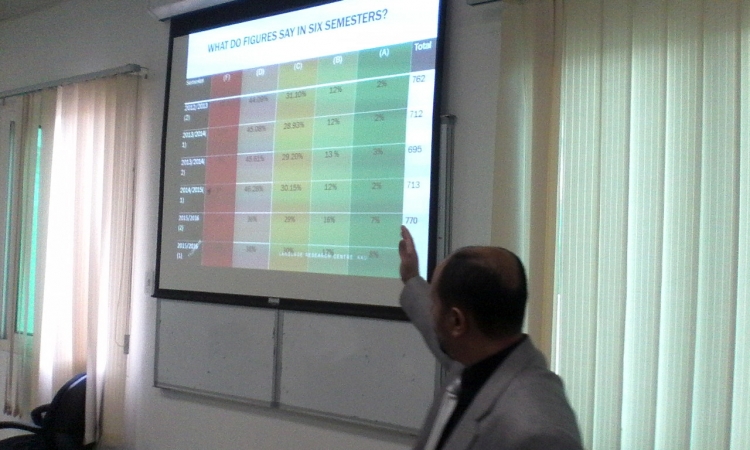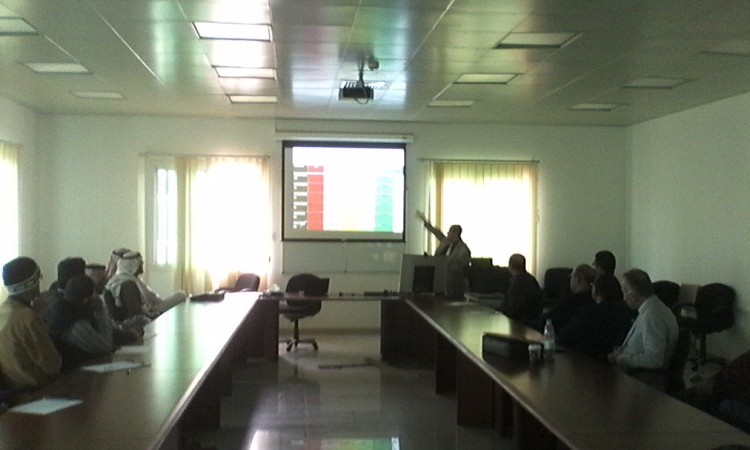The Hegemony of English in the Linguistic Landscape of Abha
Nadia Mohammed Aloraij, an MA student, delivered a presentation titled The Hegemony of English in the Linguistic Landscape of Abha at a seminar organized by the Language Research Center of King Khalid University held on October 04, 2017. The seminar took place at the King Abdullah Road campus. In her presentation, she focused on how English has influenced Arabic in Abha in various sectors.
The primary objectives of her study were to examine the use of English side-by-side with Arabic and to investigate social and psychological attitudes towards the spread of English in commercial signs and identify the policy of using English on commercial signs in the KSA.
Nadia, while talking about the significance of her study, mentioned her concerns about the influence of English that severely affects the mother tongue. For her research method, she chose shop signs on three main streets of Abha. After her quantitative analysis, she concluded that Arabic is still the predominant language.
The seminar was very interactive, engaging and overall successful. It is worth noting that Graigor campus also participated in the seminar through video conferencing.
Date: 10-4-2017
Source: MD Adil
Multimedia Contribution: MD Sirajul Islam

